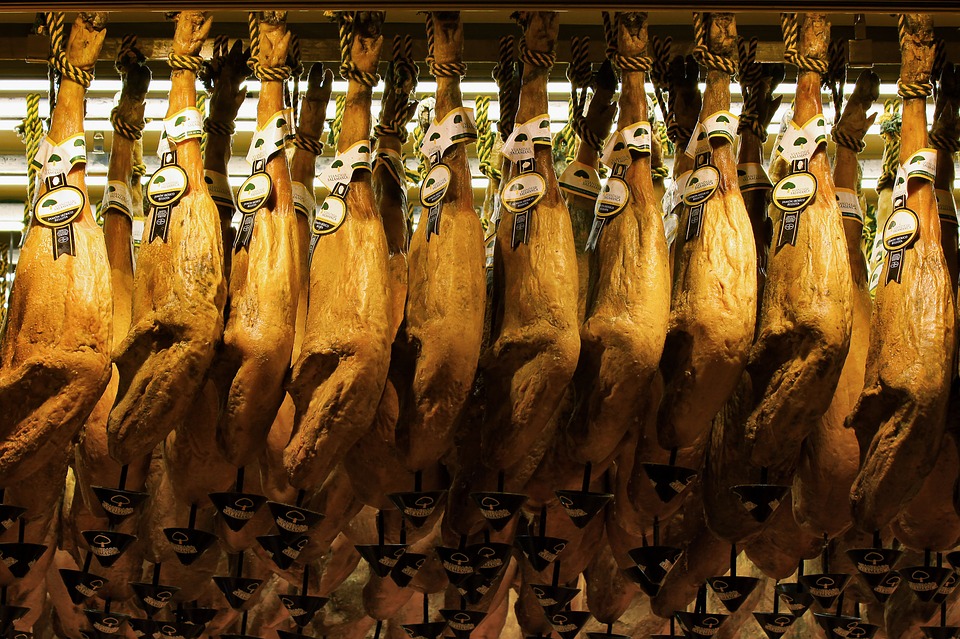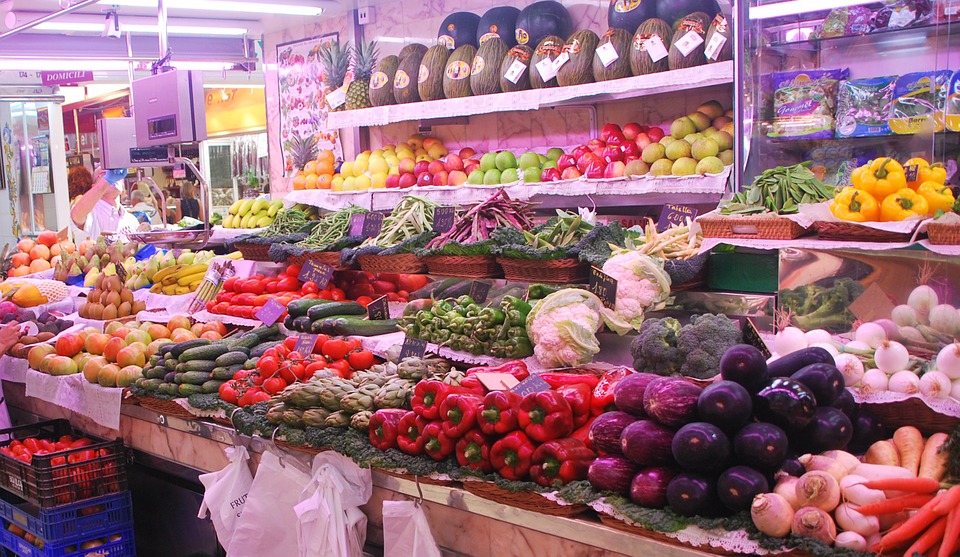
The Farm to Fork strategy aspires to fix our broken food systems while advancing the EU’s sustainability goals. Stakeholders were recently invited to review the Roadmap for the new strategy, proposed by the European Commission as part of its flagship new environmental policy, the Green Deal, in December 2019. In this three-part series we hear what environmental, health and farming organisations have to say about Farm to Fork so far.
Here, Natasha Foote reports on some of the key voices in the health sector to bring us their take on the strategy as it currently stands.
Healthcare Without Harm: Healthy food system for healthy citizens
In their feedback, Healthcare Without Harm (HCWH), the European non-profit coalition of hospitals, healthcare systems, academic institutions and related organisations, highlights the multiple environmental, health, and economic impacts of our current food systems.
They stress that that this can “only be adequately addressed if we change our policies and attitudes to food production and consumption in Europe.”
Agroecology: not only desirable, but necessary
HWCH place a strong emphasis on initiating a sustainable transition to agroecological farming in order to respond to environmental challenges while providing a sufficient and healthy diet for a growing population.
Particular focus is given to the “urgent action” required to reduce pesticide use in Europe, stating that, while commendable, the Commission’s ambition to reduce pesticides doesn’t go far enough – instead, HCWH supports the introduction of a more ambitious target to reduce pesticide use by 80% by 2035.
They call for the EU Commission and member states to support a reduction in pesticide use through leveraging the Common Agricultural Policy (CAP) to reward farmers who practice agroecology.
Anti-microbial resistance: ‘a global threat to health’
HCWH highlight that the development and spread of anti-microbial resistance (AMR) is caused by the “inappropriate and excessive” use of antibiotics in the agricultural sector, saying this constitutes a global threat to health.
They call on the Farm to Fork Strategy (F2F) to facilitate the reduction of antibiotics use in the agricultural sector by 50% by 2030, stating that the strategy must include clear links with the EU One Health Action Plan on AMR and the EU regulations on veterinary medicinal products and medicated feed that will come into force in 2022.

Create ‘health-enabling’ food environments
HCWH supports the implementation of measures which ensure that the healthy option “is the easy, default and most affordable option.”
Specifically, examples given include a special emphasis on increasing whole, plant-based products, and reducing animal product consumption (meat, dairy and eggs) particularly from industrialised animal agriculture, by 50% by 2040.
They also emphasise that the marketing and advertising of unhealthy food should be regulated, especially in school and healthcare facilities, where healthier and more diverse choices should be particularly prioritised.
European Public Health Alliance: Health and well-being are a ‘key pillar of sustainability’
In their response to the strategy, the European Public Health Alliance (EPHA), a member-led organisation made up of public health NGOs, patient groups, and health professionals, say they view the Farm to Fork Strategy as an important opportunity to deliver a “coherent response” to food-related challenges and pave the way towards an “integrated, sustainable food policy” for the EU.
Transformative change, not symbolic
EHPA stresses that the EU food system needs a “fundamental change of direction considering the severe, interconnected and systemic challenges faced.”
In order to be able to deliver concrete results, EHPA state that the strategy must be guided by a set of time-bound targets. These should be accompanied by an effective policy mix of measures, including “inclusive, transparent and structured governance processes” that can evolve over time to adapt to and address additional actions on food environments. They highlight that the strategy should avoid putting excessive reliance on voluntary mechanisms.
EPHA also call for the inclusion of a thorough and comprehensive health impact assessment in the strategy, centring around the precautionary principle, in order to appraise the effect of measures taken.

Transition towards healthy, plant-rich diets: less and better animal products
Similarly to Healthcare Without Harm, EPHA places a strong emphasis on the need to encourage the uptake of sustainable diets and to promote “enabling” diets, i.e. make the healthiest option the easiest one.
For this, they recommend an action plan for the creation of healthy and sustainable food environments. This action plan should be driven by targets, guided by sustainable dietary recommendations, and led by good policies.
They stress that it should also introduce a dedicated framework of action towards less and better meat, dairy and egg consumption and production in the EU, and mainstream food and nutrition security into EU social policy initiatives.
They suggest that some of these recommendations should be taken forward at an EU level and some at national levels with support from the EU.
Ensure adequate financing for the transition
EPHA raise the point that nearly 10% of EU GDP is spent on healthcare and up to 80% of that spending goes into treating non-communicable diseases (NCDs) – for which an unhealthy diet is a main risk factor.
They highlight that NCDs are “highly preventable” and public health interventions show high returns on investment. EPHA therefore emphasise that a successful F2F strategy will, in the medium and longer term, lead to considerable cost savings for Member States, releasing funds for other transition investments.
They also highlight that the strategy should consider how to leverage available funding possibilities, or appropriate a specific budget from different funding streams, including the CAP and the Cohesion and European Regional Development Funds (ERDF) to support sustainable innovation in national and local public food procurement policies.
Compassion in World Farming: The future of food is plant-based
Compassion in World Farming (CiWF), a campaigning and lobbying animal welfare organisation, say that the Farm to Fork Strategy presents an ideal opportunity for the EU to lead the transition to food and farming systems which emphasise healthy plant-based nutrition, and which respect animal welfare, the health and boundaries of the planet and its ecosystems.
Industrial animal farming: harmful for human and planetary health
Emphasising that industrial animal farming has “significant harmful impacts” on both human and planetary health, CiWF calls for a 70% reduction in consumption of land animal products and a 50% reduction in fish by 2030, and to end the use of cages in animal farming by 2027.
They also state that meat consumption is an important contributor to impaired human health from heart diseases, obesity, diabetes type 2, certain cancers from overconsumption of red and processed meat.
As well as the binding reduction targets, they also emphasise that the F2F process should include the development of sustainable dietary guidelines, with supporting policy making it easy and affordable for citizens to enjoy plant-rich diets.
Anti-microbial resistance is also highlighted as a key area of concern CiWF’s feedback, in which they say that widespread inappropriate use of antimicrobials in animal production contributes to the rising threat of antibiotic resistance.
Healthy humans, healthy planet
Health and environmental groups share many of the same asks for Farm to Fork, reminding us that what’s good for humans can also be good for the planet. A transition to agroecological farming, for example, would help us respond to environmental challenges while feeding more of us a healthy, sustainable diet. Common ground is also found in the “less is better” message on meat, dairy and eggs. Another top demand from both health and environmental groups is ambitious targets to slash the use of pesticides and antibiotics on Europe’s farms. “Enabling” food environments play a crucial role in guiding consumers to make better choices. And with the heated debate surrounding proposed cuts to the CAP budget, it’s important to consider the potential savings of investing in preventive healthcare i.e. making a healthy, sustainable diet accessible for everyone.
In the next instalment in this series we’ll hear what farmers’ organisations have to say about the Roadmap for the Farm to Fork strategy.
More on Farm to Fork on ARC2020
Poking Holes in Farm to Fork: Environmental Groups Seek a Coherent Vision
CSOs Open Letter on the Farm to Fork strategy to Achieve Sustainable Food Systems
Awkward Alignment – How will Green Deal Momentum and the CAP Process Work Together?





